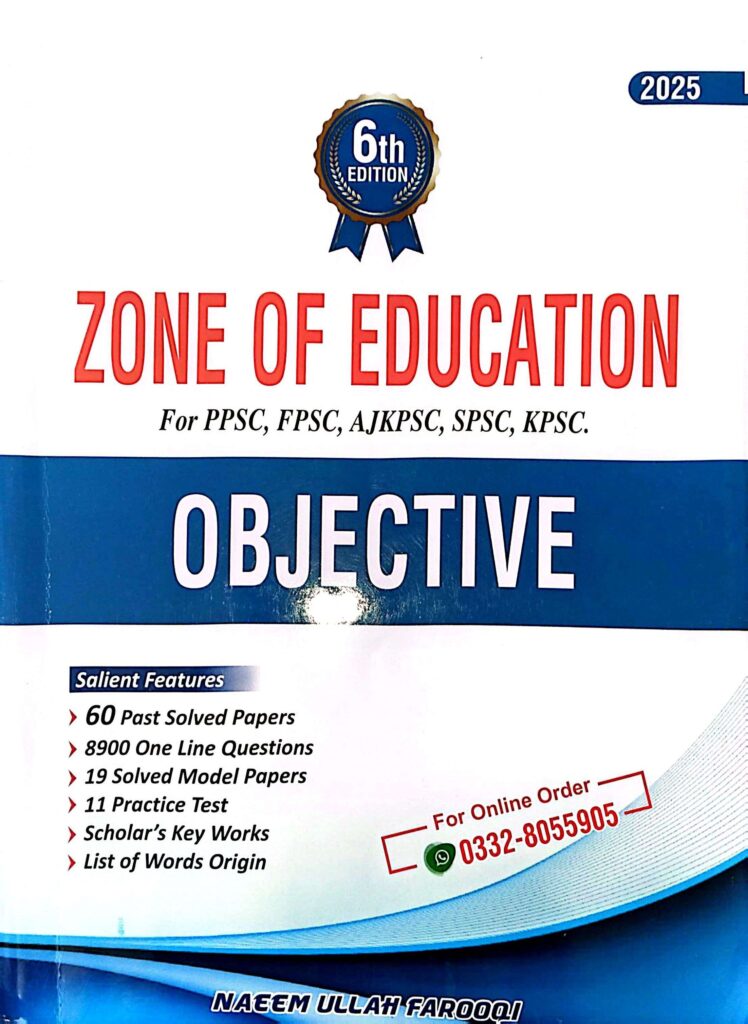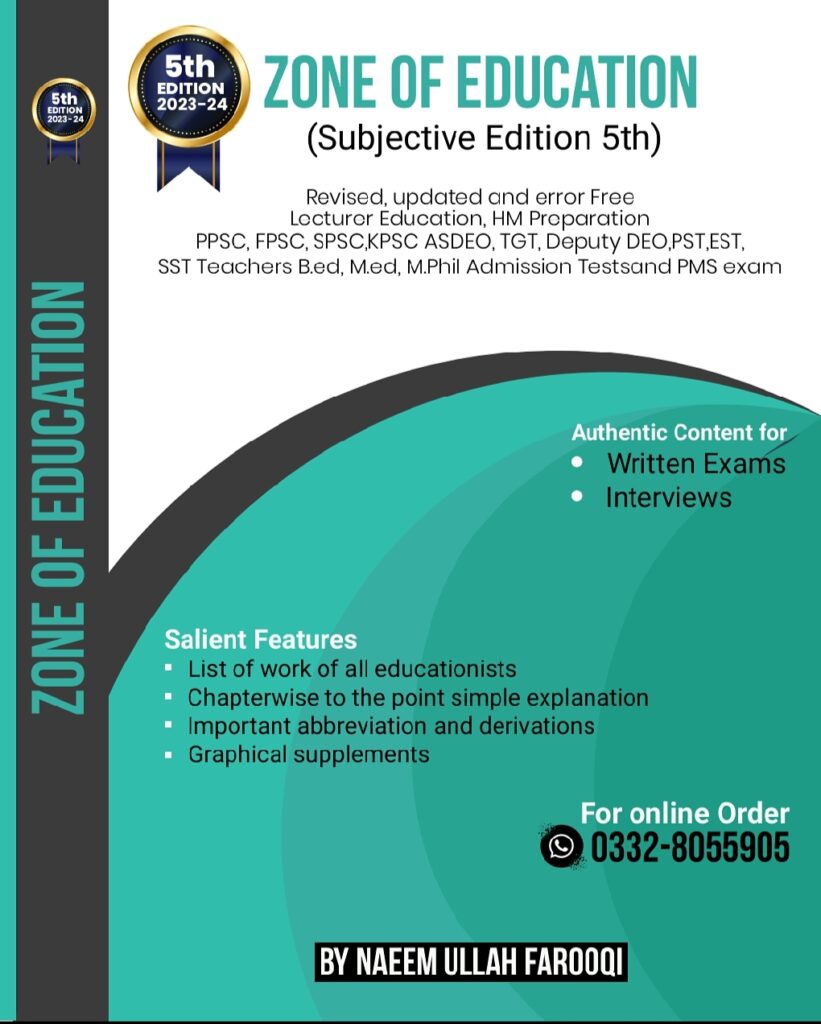Nature of Teaching
.108. A student who performs independently at the level of psychomotor domain is?
A. Articulation
B. Manipulation
C. Precision
D. Imitation
109. “Teaching is the means whereby the experienced members of the group guide the immature and infant members in their adjustment of life”This defnition of teaching method is defned by
A. B.O Smith
B. Yoakam and Simpson
C. Morrison
D. Clarke
110. defines teaching method as follows “Activities that are designed and performed to produce change in behaviour”.
A. Simpson
B. Clarke
C. Morrison
D. B.O Smith
111. “Teaching is the Stimulation guidance direction and encouragement of learning “this defnition of teaching is attributed to
A. Simpson
B. Burton
C. Clarke
D. Morrison
112. The Principles of teaching are of types.
A. 2
B. 5
C. 3
D. 4
113. Principles of teaching comprise
A. Psychological
B. General principles of teaching
C. Both A and B
D. None of the above
114. General principles of teaching are enumerated as
A. Principle of aim Principle of activity linking with actual life
B. Knowledge of entering behaviour principle of planning
C. Principle of subject mastery principle of pupil participation
D. All of above
115. Classroom environment student motivation, reinforcement and feedback are the principles.
A. Psychological
B. General Principles
C. Both A and B
D. None of above
116. Psychological principles are
A. Principle of feedback principle of reinforcement principle of providing training to senses the principle of utilizing group dynamics
B. The principle of encouraging self, learning the principle of fostering creativity and self-expression
C. The principle of remedial teaching
D. All of the above
Answer-Key
108. A 109. B 110. B 111. B 112. A 113. C 114. D 115. A 116. D
117. A permanent change in behaviour is called
A. Learning
B. Teaching
C. Presentation
D. All of above
118. How many categories under which the principles of teaching are discussed?
A. One
B. Two
C. Three
D. Four
119. Effective teaching principles heads are
A. General principles
B. Psychological principles
C. Both A and B
D. None of the above
120. The following principles belong to principles of teaching. The principle of for a lesson. The principle of planning (Good teaching is always planned, planning involved selection division and revision). The principle of subject mastery. The principle of pupil participation. The principle of suggestiveness (Good teaching is suggestive rather than authoritative). The principle of repetition and exercise.
A. General
B. Psychological
C. Both A and B
D. None of the above
121. The following principles belong to principles of teaching. The principle of liberating the learner. The principle of looking ahead (Good teaching looks ahead while it also takes into account the past experiences of the children) The principle of linking with actual life. The principle of knowledge of entering behaviour. The principle of activity.
A. General
B. Psychological
C. Both A and B
D. None of the above
122. The principles of teaching include the following. The principle of feedback and reinforcement. The principle of providing training to senses. The principle of utilizing group dynamics. The principle of encouraging self-learning The principle of fostering creativity and self-expression The principle of remedial teaching.
A. General
B. Psychological
C. Both A and B
D. Neither A nor B
123. Teaching method is a style of the presentation of content in
A. Home
B. Classroom
C. Play ground
D. None of the above
124. The term method covers both strategies and tactics of and involves the choice of what is to be taught and in which order is to be presented”
A. Teaching
B. learning
C. Both A and B
D. None of the Above
Answer-Key
117. A 118. B 119. C 120. A 121. A 122. B 123. B 124. A
125. Teaching activities and instructional procedure are performed by using of teaching.
A. Maxims
B. Idioms
C. Proverbs
D. None of the above
126. “Maxims of ” are the rules for making difficult terms and concepts easy to comprehend in classroom teaching.
A. Teaching
B. Learning
C. Publishing
D. None of the above
127. A maxim of teaching
A. makes presentation of terms and concepts easily understandable
B. enables teacher to communicate according to mental level of the students
C. is an important component of instructional procedure in presenting content in an effective way and helps in organizing teaching activities
D. contains All of the above
128. Awareness of the Maxims of Teaching is essential for a in order to perform tasks of teaching in an organized manner.
A. Learner
B. Teacher
C. Parents
D. None of the above
129. Are the following are important maxims of teaching? From simple to complex. From known to unknown. From part to whole.
A. No
B. Yes
C. May be
D. May not be
130. Do the following are maxims of teaching? From particular to general. From analysis to synthesis. From empirical to rationale, From whole to part. From concrete to abstract. From direct to indirect. From psychological to logical.
A. No
B. Yes
C. May be
D. May not be
131. Are the following five of the salient features of good teaching. Good teaching is well planned. Good teaching is stimulating. Good teaching involves a skill in guiding. Good teaching is suggestive and cooperative. Good teaching is correlative.
A. No
B. Yes
C. May be
D. May not be
132. Good Teaching is a means of adjustment. organization of learning. kindly as well as sympathetic. democratic. both diagnostic and remedial. liberates the learner.
A. No
B. May be
C. Yes
D. May not be
133. The teaching phases include
A. Pre active phase
B. Interactive phase
C. Post Active phase
D. All of the above
Answer-Key
125. A 126. A 127. D 128. B 129. B 130. B 131. B 132. C 133. D
JOIN ZONE OF EDUCATIONPK!
Discover the most comprehensive and reliable pedagogy resources in Pakistan, curated for competitive exam success. Our content covers all competitive exam MCQs, including PPSC, FPSC, AJKPSC, SPSC, and more. Designed to empower learners with top-notch material and insights, trust us for your preparation journey!


